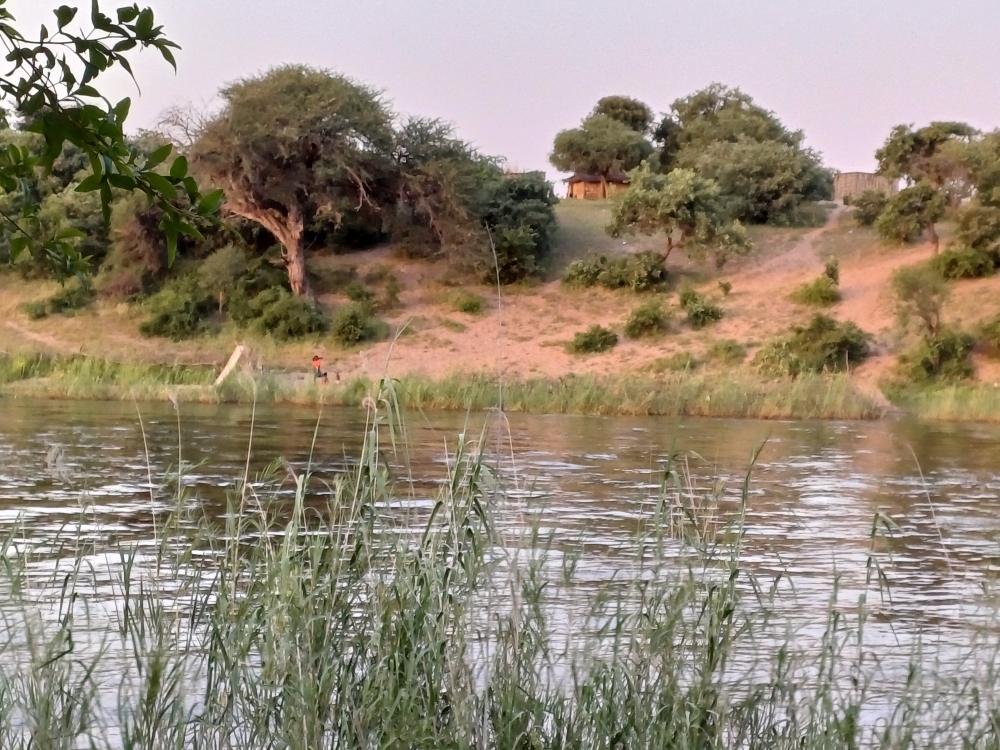Hydrological drought on the horizon
Some of Namibia’s border rivers have now reached very low levels for this time of the year, while the average level of the country’s storage dams stands at only 54.8%.
According to the latest flood bulletin issued by the Hydrological Services of Namibia, the border rivers with low water levels include the Zambezi, the lower Orange and the Kavango.
It warned that a hydrological drought could occur if rainfall conditions do not improve, pointing out that supply dams as Hardap, Swakopppoort, Von Bach, Omatako, Tilda Viljoen, Daan Viljoen and Otjivero did not receive good inflow.
“Activation of contingency plans for hydrological drought mitigation is highly advised.”
Dam levels
NamWater’s dam bulletin indicated that the reservoirs in the central areas of Namibia now stand at 22.6% of their capacity. This is compared to last season’s 42.8%.
The Swakoppooort Dam is at 38.6% of its capacity, the Von Bach Dam 11.1% and the Omatako Dam 0.4%.
This three-dam system supplies Windhoek with water and their total average level stands at 19.4%, compared to last season’s 40.2%.
Meanwhile, the Friedenhau Dam is 55% full and the Goreangab Dam is at 102%.
In the south, the average level of the dams stands at 62%, compared to last season’s 77.7%.
The Neckartal Dam, which is Namibia’s largest, is at 83.5% of its capacity. Last season, it was 93.7% full.
The level of the Hardap Dam near Mariental has dropped to a mere 11.7%. When it reaches about 6% of its capacity, all raw water to the Hardap Dam Scheme will stop.
The Naute Dam is at 39.3% and the Oanob Dam 42.3%, while both the Dreihuk and the Bondels dams are empty. In the east of the country, the total average of the dam levels is only 3.4%, compared to last season’s 10.6%.
The Otjivero Main Dam is 4.5% full, the Tilda Viljoen Dam 4.5% and the Daan Viljoen Dam 5.5%. In other parts of the country, the Olushandja Dam in the Oshana Region is 36.6% full, compared to last season’s 18.6%.
According to the Namibia Meteorological Service, moderate to heavy rainfall is expected to persist in the Kunene, Erongo, Otjozondjupa, Khomas and Omaheke regions, as well as in some places in the south-east of the country.
According to the latest flood bulletin issued by the Hydrological Services of Namibia, the border rivers with low water levels include the Zambezi, the lower Orange and the Kavango.
It warned that a hydrological drought could occur if rainfall conditions do not improve, pointing out that supply dams as Hardap, Swakopppoort, Von Bach, Omatako, Tilda Viljoen, Daan Viljoen and Otjivero did not receive good inflow.
“Activation of contingency plans for hydrological drought mitigation is highly advised.”
Dam levels
NamWater’s dam bulletin indicated that the reservoirs in the central areas of Namibia now stand at 22.6% of their capacity. This is compared to last season’s 42.8%.
The Swakoppooort Dam is at 38.6% of its capacity, the Von Bach Dam 11.1% and the Omatako Dam 0.4%.
This three-dam system supplies Windhoek with water and their total average level stands at 19.4%, compared to last season’s 40.2%.
Meanwhile, the Friedenhau Dam is 55% full and the Goreangab Dam is at 102%.
In the south, the average level of the dams stands at 62%, compared to last season’s 77.7%.
The Neckartal Dam, which is Namibia’s largest, is at 83.5% of its capacity. Last season, it was 93.7% full.
The level of the Hardap Dam near Mariental has dropped to a mere 11.7%. When it reaches about 6% of its capacity, all raw water to the Hardap Dam Scheme will stop.
The Naute Dam is at 39.3% and the Oanob Dam 42.3%, while both the Dreihuk and the Bondels dams are empty. In the east of the country, the total average of the dam levels is only 3.4%, compared to last season’s 10.6%.
The Otjivero Main Dam is 4.5% full, the Tilda Viljoen Dam 4.5% and the Daan Viljoen Dam 5.5%. In other parts of the country, the Olushandja Dam in the Oshana Region is 36.6% full, compared to last season’s 18.6%.
According to the Namibia Meteorological Service, moderate to heavy rainfall is expected to persist in the Kunene, Erongo, Otjozondjupa, Khomas and Omaheke regions, as well as in some places in the south-east of the country.




Comments
Namibian Sun
No comments have been left on this article